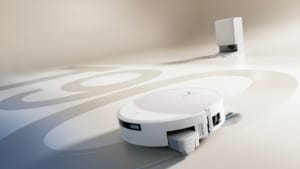Intel releases a microcode update to prevent crashing Raptor Lake CPUs
Intel releases a microcode update to prevent damage to Raptor Lake CPUs and urges users to update their BIOS for better stability.

You may need to update your motherboard if you own a desktop PC powered by Intel’s 13th or 14th Gen Raptor Lake processors. Intel has announced another microcode update designed to address potential issues that could lead to permanent damage and crashes in Raptor Lake CPUs.
The new update, microcode 0x12B, aims to prevent a serious problem where the processor demands too much power, even when idle or performing low-level tasks. Excessive voltage in these situations can speed up the ageing of your CPU, eventually leading to system instability and crashes. While this update doesn’t fix CPUs that are already crashing, it helps protect those that are still functioning properly.
Why this update is important
If your Raptor Lake processor is still working fine, Intel’s latest microcode update could help it stay that way. By addressing power management issues, the update reduces the chances of the processor requesting too much voltage during idle moments or light tasks. This may not sound like a big problem, but in the long run, excessive voltage can cause premature wear on the chip, reducing its lifespan and potentially causing your PC to crash.
Intel has rolled out microcode 0x12B to motherboard manufacturers, but it may take a few weeks for them to validate and release new BIOS updates. These BIOS updates are necessary to integrate the microcode fix into your system, so keep an eye out for updates from your motherboard’s manufacturer.
That said, you don’t necessarily have to wait for this latest update. Many earlier BIOS updates already contain previous Intel microcode fixes designed to protect your processor from similar issues. Additionally, these BIOS updates often come with new power settings that further reduce the risk of damage to your CPU.
What to do if your CPU is already crashing
If you’ve already experienced crashes or instability with your Raptor Lake CPU, this new microcode update might not be able to help. In such cases, the best action is to return your processor. Intel offers an extended warranty for these CPUs, so you should be able to get a replacement from either Intel or your PC system provider. If you encounter any resistance from them, push for your right to a warranty claim.
Intel has not disclosed how many Raptor Lake CPUs have been affected by this issue, and the company has not yet responded to questions about potential instability in certain batches of chips. This follows reports earlier this year of oxidisation-related issues also causing Raptor Lake CPUs to fail. While Intel insists that its laptop chips aren’t affected by these voltage problems, some users have reported similar behaviour in Raptor Lake laptop processors.
For now, if you own a Raptor Lake desktop processor, staying on top of BIOS updates is crucial. Keeping your motherboard’s BIOS current ensures you benefit from Intel’s ongoing efforts to fix these problems and protect your system.
















